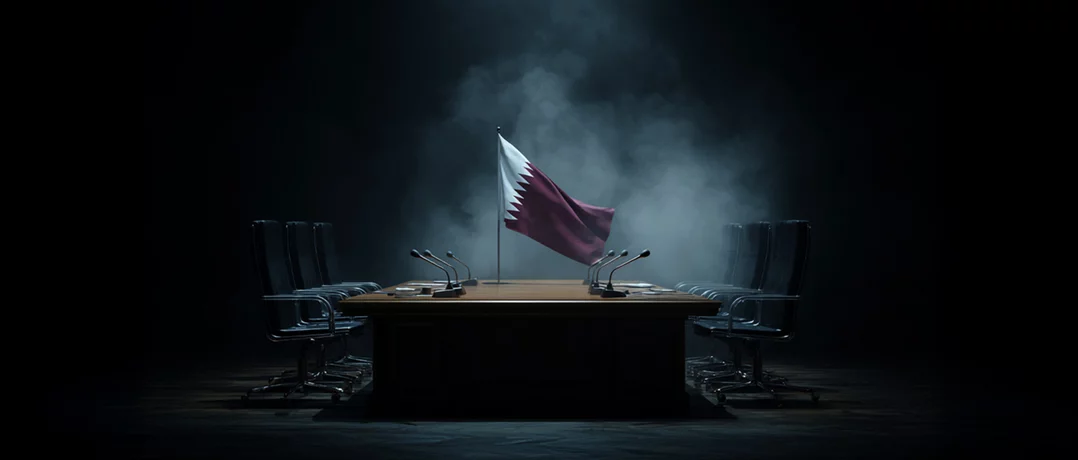Doha continues to balance ties with Hamas, Israel, and the West, reaffirming its indispensable place in Middle East negotiations.
Israel rare apology revives Qatar's mediation efforts
Israel rare apology revives Qatar's mediation efforts


Qatar has reaffirmed its position as a central mediator in negotiations between Israel and Hamas, even after an Israeli airstrike in Doha earlier this month killed six people, including a Qatari security officer. The incident, denounced by Qatari officials as a violation of sovereignty and an act of “state terrorism,” prompted speculation that the Gulf state might withdraw from talks.
Instead, Qatar chose to stay the course underscoring how deeply its diplomatic identity is anchored in mediation. For decades, Doha has branded itself as a regional go-between, hosting adversaries and armed groups while maintaining close partnerships with the United States and Europe. That balancing act often criticized, yet strategically vital has made Qatar one of the few actors accepted by both Israel and Hamas as a channel of communication.
A Longstanding Role in Regional Diplomacy
Qatar’s mediation is not a recent phenomenon. Since the 1990s, the small but wealthy emirate has used its economic power and political agility to carve out influence across the Middle East. By hosting Hamas’s political bureau in Doha, it secured a direct line to the group while keeping strong ties with Washington intact a rare duality that has repeatedly positioned it as a credible broker.
This unique role enabled Qatar to mediate several ceasefires in Gaza over the past decade and to facilitate hostage-release negotiations. It has consistently presented itself as a pragmatic, indispensable interlocutor in conflicts where larger regional powers are either distrusted or too partisan to engage.
U.S. Dependence and Diplomatic Calculations
Washington’s reliance on Doha has deepened amid the latest Gaza war. The United States has leaned heavily on Qatari diplomacy to sustain fragile ceasefire discussions and negotiate the release of Israeli hostages. That dependence was underscored in the aftermath of the strike, when former U.S. President Donald Trump reportedly arranged a direct call between Israeli Prime Minister Benjamin Netanyahu and Qatar’s Emir Sheikh Tamim bin Hamad Al Thani.
During that conversation, Netanyahu expressed “deep regret” for the attack a rare Israeli apology that revealed the depth of Qatar’s diplomatic leverage and the extent to which Israel and the West see Doha as indispensable to any future truce.
A Violation of Sovereignty and a Test of Neutrality
For Qatar, the airstrike was not merely a security breach; it was a challenge to its legitimacy as a neutral platform for dialogue. The Foreign Ministry has since announced a legal review into possible international action and warned that continued participation in mediation depends on respect for its sovereignty.
Officials in Doha have also hinted that their involvement “cannot be taken for granted,” a pointed reminder to both Israel and its Western allies that Qatar’s role though critical has limits. The attack has left Doha navigating a delicate balance: preserving credibility with Hamas while reassuring Washington that it remains a constructive partner.
The Paradox of Influence
Mediation is both Qatar’s foreign policy instrument and its brand. By serving as an intermediary, it projects power disproportionate to its size, reinforcing its status as a hub of negotiation, diplomacy, and soft power. Walking away from the Israel-Hamas file would weaken that standing and erode the trust it has built with the United States and European governments that rely on its outreach.
Yet the paradox has never been sharper. Qatar is indispensable to talks and simultaneously exposed to the very conflict it seeks to contain. The Israeli strike demonstrated the risks of that role, pulling the Gulf state closer to a war it cannot control.
For now, Doha appears determined to hold its ground. In the high-stakes arena of Middle Eastern diplomacy, the benefits of remaining at the table political relevance, global recognition, and leverage among rivals, still outweigh the dangers. But the price of mediation, as the strike showed, is growing steeper by the day.


